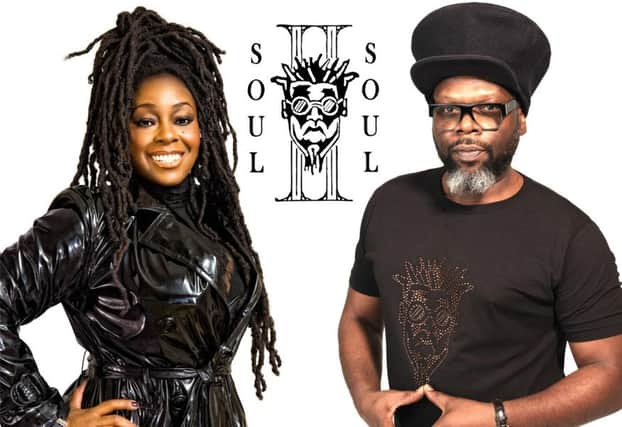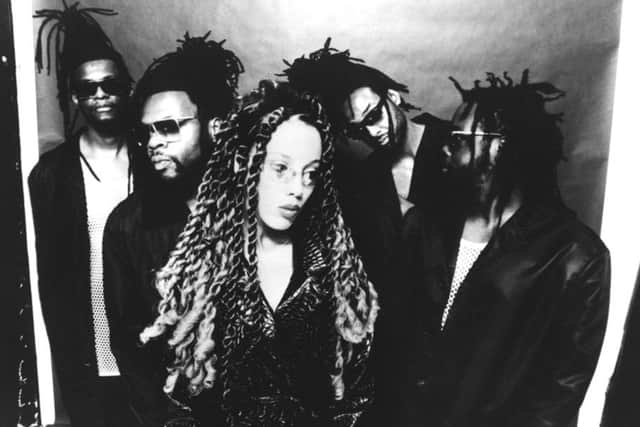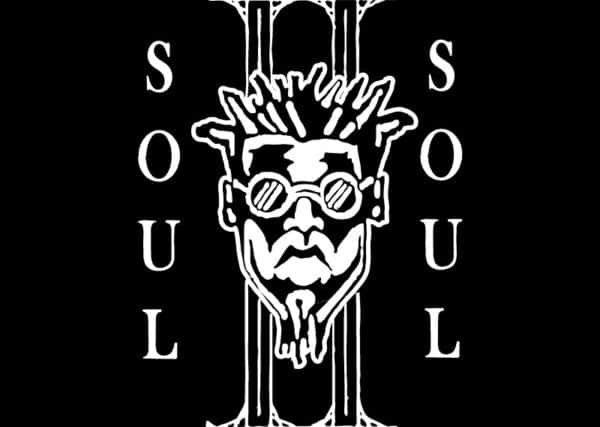Music interview: Jazzie B on Soul II Soul


Making a documentary for BBC2 on his rise against the odds in 80s Britain has given Soul II Soul founder Jazzie B much food for thought in recent months.
“I don’t think I’ve ever gone that deep into myself,” says the 53-year-old DJ, producer and entrepreneur – whose real name is Trevor Beresford – on the questions of personal identity addressed in From Dole To Soul.
Advertisement
Hide AdAdvertisement
Hide Ad“There’s a saying ‘It takes a village to raise a child’. It opened my eyes how much effort and sacrifices my parents made. Things that might have been complicated for other people didn’t seem that way or as tough as it were for me, coming from a big family [of ten] there was a large network of people that you also had the choice of knowing.”


Jazzie also found himself reflecting on how quickly time has passed. “Remembering power cuts and the three-day week; walking everywhere and the No14 bus that literally served me like a chauffeur; getting stopped by the police every week – that was just the norm for us and when you start explaining it that was interesting, I’ve got kids who thankfully haven’t gone through that.
“I’m not looking for any sympathy. It was hard for everyone,” he says. “My philosophy in life has very much been ‘everyone works hard, you’ve got to work smart’. There was a little bit of luck involved.”
At the heart of it all was a sense of community in his north London neighbourhood. Jazzie feels he and his contemporaries were “more likely to respond” to the racial insults they encountered than his elder siblings. “It was a different time,” he says. “We were carving our way in society.” Technology opened a door then Conservative Prime Minister Margaret Thatcher “flipped the script on everyone”, causing the collapse of the class system. “In all that adversity going on it actually left a few cracks open for people like myself. I suppose we just took advantage of all the things that were interesting.”
Advertisement
Hide AdAdvertisement
Hide AdInspired by his brothers, in his teens Jazzie had set up his own sound system, playing reggae and soul. Its popularity took him outside London, to places such as Chapeltown in Leeds (“I’ve got quite a lot of family up that way,” he says), as well as Sheffield, Manchester and Bristol.


He later cut his teeth as a tape operator at Tommy Steele’s recording studio. “One of the main things which suited me better was working on the shorter projects,” Jazzie recalls. “I did a lot of TV adverts and stuff like that which really gave me the knowledge to move from the DJ thing to a bit more of a business. Those sessions were really hard because you paid for every minute in the studio in those days, there was no margin for any error and we worked with some pretty hefty clients.”
He founded Soul II Soul in 1988 with the ethos of a collective, rather than a conventional band. “I guess it was taken from the derivative of the sound system where you’ve got various people doing different things,” he explains. “Different members of the collective were a bit more au fait with technology than others so that helped.”
In a time of much anger at the state of the country, Soul II Soul espoused positivity in records such as Keep On Movin’ and Back To Life and their motto: ‘A happy face and a thumping bass for a loving race’. Jazzie says: “Everybody remembers all the angriness and the difficulties of life coming up but I think when you’re born in these situations, and I think particularly in my culture as a West Indian, there is always that opportunity to laugh and have fun you did as almost a natural anaesthetic for all the s*** you were going through.”
Advertisement
Hide AdAdvertisement
Hide AdAs well as the records, which sold in the millions on both sides of the Atlantic, there was also ‘Funki Dred’ clothing. Jazzie says they wanted to create a sense of identity. “Both in our visual appearance and our attitudes as well as our music, how we defined ourselves. With us as black British people born here, I remember people saying, ‘Go back to where you came from’. We’d go, ‘We came from Finsbury Park, what are you talking about?’ We were part of the fabric of this society. When we did go to the Caribbean you were called ‘English boy’ and ribbed, so where do we actually belong? I described it as being like an alien with a passport because anywhere we went it was a bit of a culture shock, at least for us in the 70s.”


Although America took Soul II Soul to its heart – they won numerous awards there including two Grammys – it took 20 years for Jazzie to officially honoured in the UK. “Paperwork, innit?” Jazzie jokes of the fact he didn’t receive an OBE until 2008. “It was in the wrong trade.”
He adds: “There was a time when you felt like you made up the numbers then there was a shift in the British infrastucture where somebody realised ‘We’ve got all these people who have been reasonable ambassadors without us realising’. Somebody obviously went in there and started to shake things up because they’re now like skittles, everyone’s getting one.
“I don’t think it was a backlash to what happened in America...No, I’m lying,” he chuckles. “But I have been rewarded with some incredible things – particularly the statue in Finsbury Park, that was voted for by the people of that area and I’m humbled and honoured by things like that.”
On December 9 Soul II Soul release a new album, Origins.
Advertisement
Hide AdAdvertisement
Hide Ad

Recorded before a live audience at London’s Metropolis Studios, it’s a venture into new territory for Jazzie.
“Now I feel I’ve graduated to the next stage in terms of not just having a collective but being like a real band. I’m not talking about just session players, we actually physically make music together,” he says.
For so long a perfectionist in the studio, for the first time he felt he could “let go”. He adds: “I was blessed with a magical moment so I grew. I learnt sometimes it can be happy mistakes.”
Soul II Soul play at the Foundry in Sheffield on November 25. soul2soul.co.uk
Jazzie B’s 80s: From Dole to Soul is due to be broadcast on BBC on November 26.